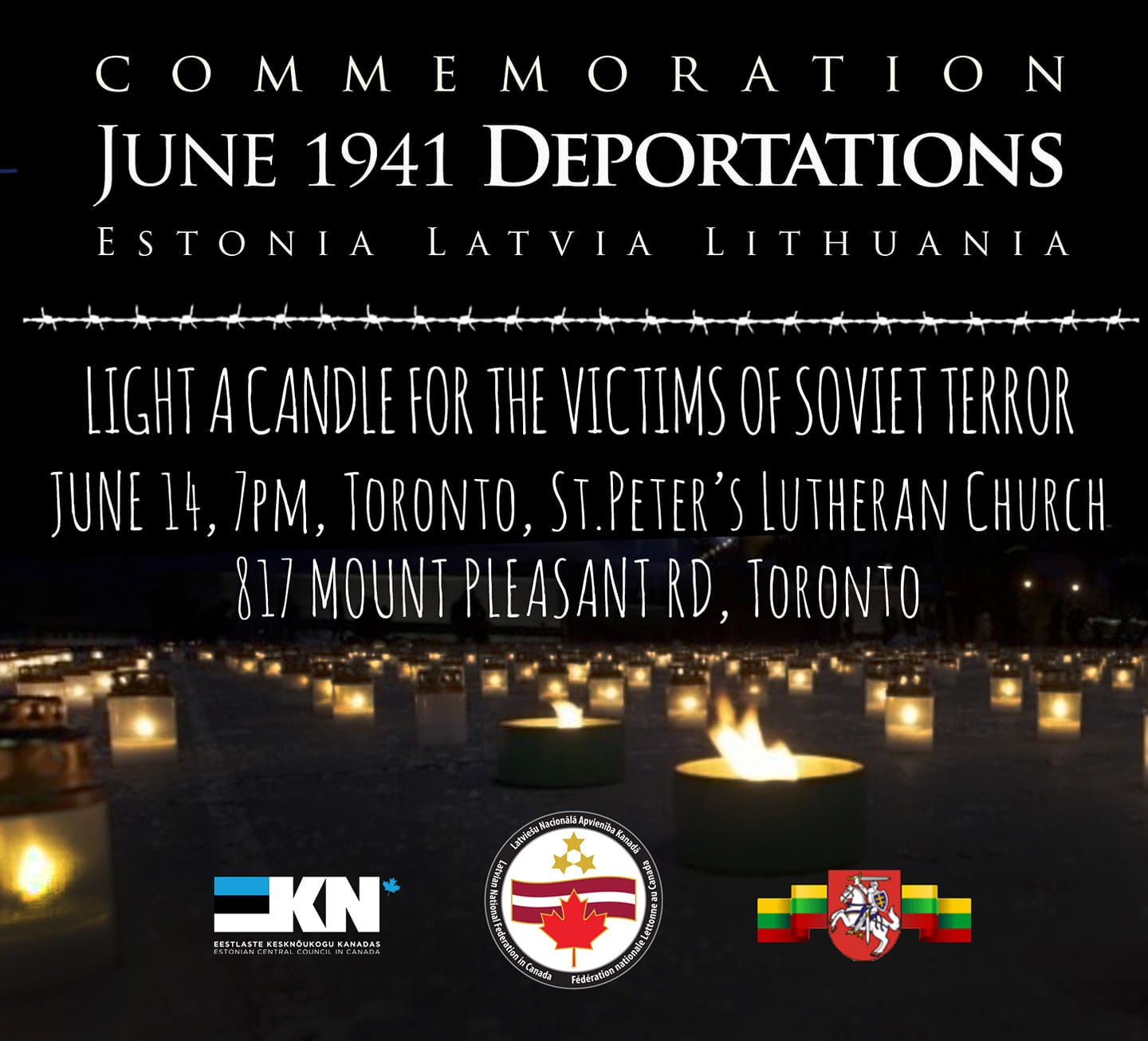Documents found years later clearly indicated, that had the repressions of the first Soviet occupation of 1940-1941 prevailed, the Communists' intention was to eventually deport all of the Estonian population to Siberia. Only Josef Stalin's death in 1954 saved Estonians from this consequence.
Some historians say that during 50 years of occupations some 274,260 Estonians were lost, about 23% of the prewar Estonian population. With no intention of lessening the horrendous inhumanity of the Holocaust, one may still point out that statistically Estonian losses as a proportion of the total population are far more consequential for the Estonian people than are the tragic losses for Jewish people. This does not diminish the horrendousness of the Holocaust.
During the winter of 1940/1941 information about potential deportees and lists of those to be deported were compiled by by the NKVD, its agents and ‘secret co-workers'. The usual methods of co-opting helpers were used: approach individuals reputed to be anti-Soviet; threaten the individual and/or the family with arrest and possible deportation if they resist recruitment. Only by collaborating were recruits able to save themselves and families.
The sources of compromising information about those to be deported was entrusted to communist party members and Soviet sympathizers. The same approach to targeting anti-Soviet potential deportees was used during post-war Soviet deportations. Anyone who had been a member of any ‘counter-revolutionary' organization such as the Home Guard, Fatherland Federation etc., or had been a security police member, a regular policeman, prison worker, large farm owner, factory owner, civil servant, military officer, refugees from Soviet-occupied Poland, Germans whom had intended to leave for Germany, and many other categories qualified for deportation, families included.
The ‘mandatory evacuations', as the deportations were officially named, started during the night of June 13, 1941. All establishments had been ordered to hand over every vehicle to the local police. Everyone involved in deporting gathered in groups at predetermined locations during the evening. These were party cadre, members of the komsomol, and recruits of various categories. For security reasons, the telephone system was shut down. But rumors of peculiar activities spread quickly nevertheless.
People noticed the collections of cars and trucks in locations and the hook-up of extraordinary long trains consisting of cattle cars at railway depots and stations. In some instances, individuals recruited into the process were able to inform others of the plans which helped many to escape from being arrested. The majority did not associate personal danger with the rumors because they didn't see any instance of being culpable in violating the law. (To be continued.)
(On Friday, June 14, a special ecumenical service will be held at S. Peter’s Estonian Lutheran Church, at 7:00 pm, commemorating the June 1941 deportations.)
Laas Leivat, Toronto




